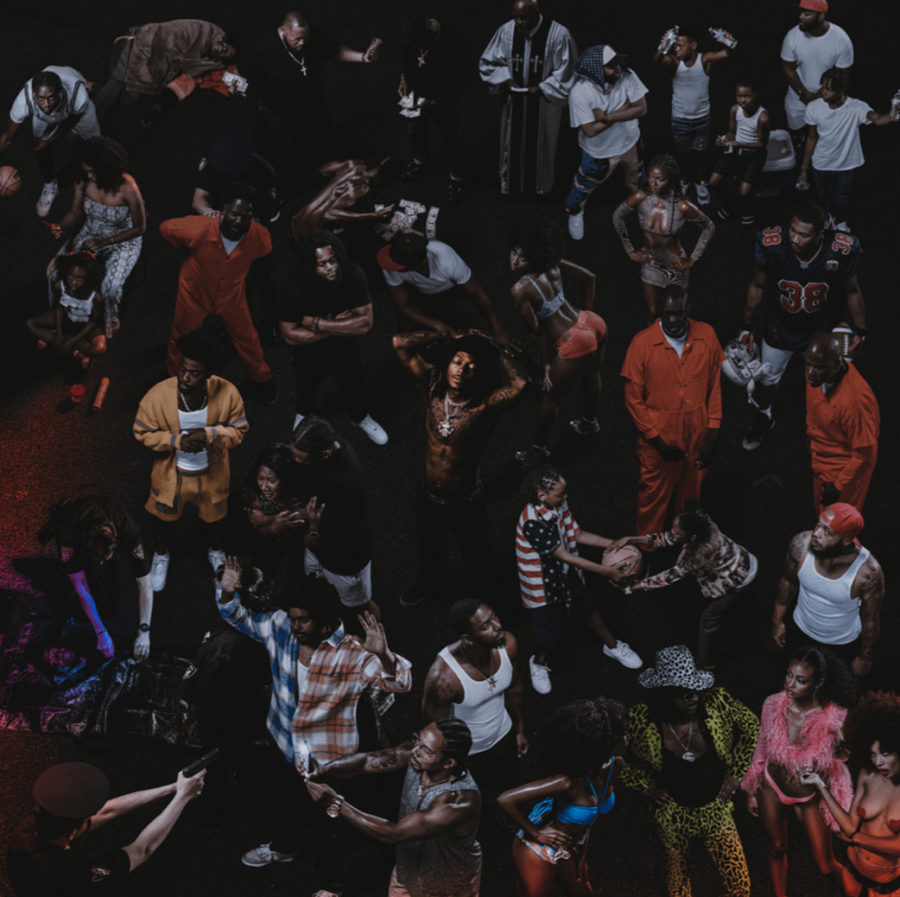Year by year, it is increasingly harder for artists to differentiate themselves from the masses in an ever-expanding rap scene. For that reason, Destin Choice Route, otherwise known as JID, is a name that many casual hip-hop listeners will not instantly recognize. Sure, you might have heard his arsenal of captivating flows on various Dreamville projects or on popular hits like “Enemy,” where he spat a blitz of a verse on smooth electronic pop rock production alongside Imagine Dragons. As a solo artist though, JID has yet to burst onto the mainstream like many of his lyrical contemporaries. Since signing with Dreamville Records–a label founded by hip-hop icon J. Cole–JID’s first two albums, “The Never Story” and “DiCaprio 2,” spawned a dedicated fanbase, despite not selling exceedingly well. Truthfully, these projects are what illuminated the pathway for JID going forward. Even with his solid discography, JID needed an album that can push him into the limelight.
In previous projects, JID established a reputation for being an indisputably skillful lyricist with clever wordplay, penmanship and enthralling flows. These skills are the centerpiece of his recent album, “The Forever Story,” a project that flaunts the maturity and profoundness of not just a rapper, but an artist.
Starting off with the hard-hitting and bass-heavy “Raydar,” JID sets the tone for the rest of the album early on. Throughout the album’s opener, JID furiously spews lyrics while being accompanied by three electrifying beats. The first of which cleverly references his high school aspirations of becoming a football player by incorporating referee whistles and a sound bite of a foul penalty being called on #6—the number he wore in college. “Raydar” presents an aggressive version of JID that is reminiscent of his performances on his debut album “The Never Story,” exhibiting his prowess on the mic to hammer himself into the minds of all listeners.
What distinguishes “The Forever Story” as JID’s best work yet is how personal and vulnerable he allows himself to be in it. Back-to-back songs “Bruddanem” and “Sistanem” brim with raw emotion, paying tribute to the tight-knit bonds between JID and his siblings. At times, the tracks present themselves as if JID was directly addressing his brothers and sisters, whether it’s through reciting the wise words they’ve uttered or detailing the lengths he’d go to support them. Grouping those tracks alongside others like “Crack Sandwich,” which highlights a brawl involving all six of his siblings in defense of his sister, put the value of family at the forefront of JID’s harsh upbringing in Metro Atlanta.
On the flip side, this album also has lighthearted bangers. The album’s second single “Dance Now” features JID’s signature style: a speedy barrage of mixed rhythms highlighted by a playful and whimsical energy. While rather simplistic, the production utilizes an extremely unique sample from “Yoel’s Niggun,” a tune by the Jewish band Zusha. The warping of the melody especially feeds into the chorus, which is sung by fellow Atlanta native Kenny Mason, constructing an easily digestible but thoroughly intriguing track.
Altogether, JID’s career rested upon this defining moment, with his previous features and projects having built a colossal amount of hype and momentum. With that dynamic in mind, JID has created something more notable than any of his projects beforehand. He has grown, he has struggled, but most importantly, he has arrived. JID is an artist with boundless talent and the innovative eagerness to continue to broaden his horizons. He has thrust himself above his colleagues and polished his craft as an artist who never sought stardom but has the potential to be remembered forever. With an album to this degree, it’s fair to ask, what can’t he achieve?









